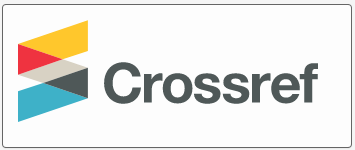Neologisms in Modern Georgian
DOI:
https://doi.org/10.52340/idw.2023.31Keywords:
anglicisms, neologisms, assimilation, conversion, word-formingAbstract
Out of the tendencies characteristic of the 21st century Georgian, mention sould be made of the abundance of neologisms, in particular, the neologisms borrowed from English and created as a result of the influence of the English language.
Languages differ in the degree of assimilation of loans. A language either passively adopts foreign words, or the loans are subject to certain changes based on the pattern of the borrower language. The stronger and richer the word-forming potential of a language, the stronger the assimilation tendencies. A good example of this are the neologisms in modern Georgian which have been borrowed from English.
An important pattern of creation of neologisms is conversion – a way of word-formation which shifts one part of speech into another. Special attention should be paid to the process when a borrowed noun turns into a verb. This process involves not only grammatical but also semantic change. Such neologisms are widespread in contemporary Georgian. Apart from the formation of verbs, for the purpose of assimilation of the loans, the language applies other means of word-formaiton like affixation and compounding. In this regard, special mention should be made of the word პიარი /piari/ obtained from the English abbreviation PR.
With time, the newly-coined words lose the status of neologism and, either form part of the lexical fund of the language, or fail to do so and become lost and forgotten.
Downloads
References
დათეშიძე, ნ. (2013). აფიქსოიდთა ფუნქციები ტერმინოლოგიაში, ქართული სიტყვის კულტურის საკითხები, წიგნი XIII. თბილისი.
ლოლაძე, ნ. (2022). ანგლიციზმები და ქართული სიტყვაწარმოების ტენდენციები, ქართული სიტყვის კულტურის საკითხები. წ. XXII. თბილისი.
ოსაძე, მ. (2016). ტერმინთა სესხება-ადაპტაციის საკითხები ქართულ ენაში. თბილისი.
ქართული ლექსიკონი (2014). ბაკურ სულაკაურის გამომცემლობა. https://ganmarteba.ge
ქართული ენის ეროვნული კორპუსი – http://gnc.gov.ge
Oxford Learner’s online Dictionaries – https://www.oxfordlearners¬dic¬tio¬na¬ries.com







